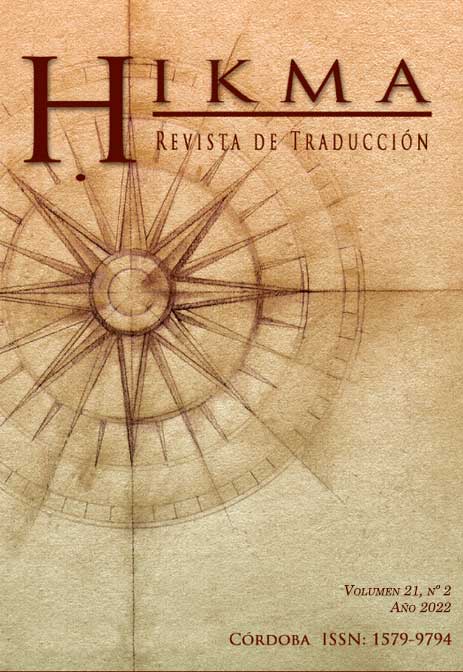Remote Interpreting in Spain after the Irruption of COVID-19: A Mapping Exercise
Main Article Content
Abstract
Remote interpreting, particularly telephone interpreting, was implemented in Spain less than 20 years ago and, since then, it has become increasingly common. Its use has even increased during the last months, due to COVID-19 circumstances and the subsequent growth of telecommuting. This paper aims at mapping remote interpreting services in Spain. With that purpose, structured qualitative interviews were conducted with representatives of the six main Spanish companies offering these services. The results show a diffusion of telephone interpreting across the country and an incipient presence of video-link interpreting. Nevertheless, more attention to quality performance and working conditions should be paid.
Keywords: Telephone interpreting, Video-link interpreting, Mapping, Qualitative interviews, Spain
Downloads
Article Details

This work is licensed under a Creative Commons Attribution-NonCommercial-ShareAlike 4.0 International License.
Authors who publish with this journal agree to the following terms:
1. Authors retain copyright and grant the journal right of first publication with the work simultaneously licensed under a Creative Commons Attribution License that allows others to share the work with an acknowledgement of the work's authorship and initial publication in this journal.
2. Authors are able to enter into separate, additional contractual arrangements for the non-exclusive distribution of the journal's published version of the work (e.g., post it to an institutional repository or publish it in a book), with an acknowledgement of its initial publication in this journal.
3. Authors are permitted and encouraged to post their work online (e.g., in institutional repositories or on their website) prior to and during the submission process, as it can lead to productive exchanges, as well as earlier and greater citation of published work (See The Effect of Open Access).

